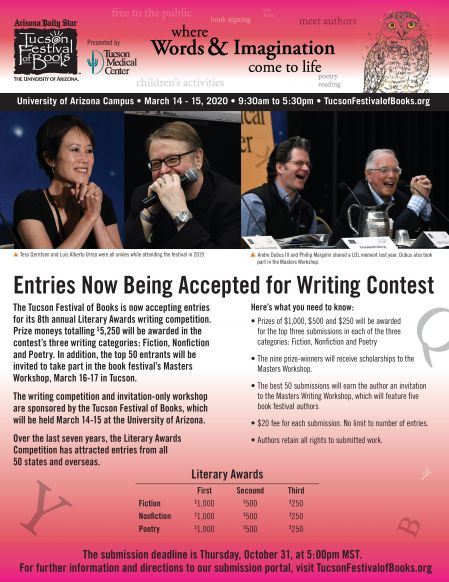Most serious writers learn from experience why revision and editing has to be an important part of the writing process. So many of us have had the experience of working arduously to create a specific image or character, only to learn after talking to a reader or a workshop that we haven’t succeeded in delivering our vision to the reader. Of course, this is one of the things that makes writing an art form: you can approach perfection, but you can never quite get there. You’re always striving to capture the elusive thing that’s in your mind because the words themselves are an imperfect medium for your idea.

But we try. And try. But how long do we keep trying before we call something done? Should we rework our poems, stories, and chapters endlessly until they see print somewhere, or is there some way to tell when we have made that piece of writing the closest, clearest approximation of our vision so that we can move on to other projects? The answer is, of course, different for different writers. I think most of us can agree, though, that if you’re not careful, you can edit something to death. You can poke at it so many times that eventually it just lays there on the pavement bleeding out of its myriad wounds.
I do not profess to have any concrete answers here and would encourage you to approach those who claim they do with skepticism. I can, however, tell you from personal experience what doesn’t work: Revising constantly based on different feedback from different readers.
I don’t know what the magic number is, but I do believe there is finite number of times you can workshop something before it loses its vitality, that original vision that drove you to write it in the first place. Revision should be about helping you achieve your unique vision, not trying to please everyone. The feedback you receive is a means to reach your own goals with the work, not an end in itself.
Inundating one reader with multiple drafts that have minor changes. Revision means adding or deleting scenes and potentially reorganizing the structure of your story, poem, chapter, etc. It does not mean changing a word from “desk” to “credenza.” (That’s editing.) It’s a beautiful thing to have someone who is willing to read your work. Don’t abuse them by offering too many drafts. Just like you, after the third or fourth time they look at it, things start to glaze over.
Spending too long on one project. One of the most exciting facets of any artistic process is the knowledge that you have created something concrete others can experience and enjoy. If you never call the thing done, you’ve never finished that creative process. Bringing an idea to fruition does not always mean publication. You the creator have to grapple with your own artistic conscience to determine when something is finished.

Grapple is the operative word there. How do you know when it’s finished? Perhaps it’s a set number of drafts. (One is not enough and 1,000 is probably too many.) Perhaps it’s a deadline you’ve developed based on an upcoming contest or one that is driven by time constraints in your own life (trying to finish that novel before summer is over, for example.) Or maybe if you’re not sure, you just take a few days or weeks away from the draft entirely. When you return, if you find you have fresh ideas for revision, apply them. If you dread picking that piece of writing up again or if you’re distracted by something new you want to work on instead, it’s probably because the previous project is finished or very close to it.
So yes, prick at your draft. Accept that bloodletting is a part of any art form. But apply your red ink with restraint, and, in the end, know when to call something finished. That’s a beautiful thing.
Jeff Sanger received his MFA from the University of Pittsburgh and teaches English composition and creative writing at Glendale Community College. In October, he will be running a free Saturday Workshop: Where Does Your Story Happen? The workshop is free and open to the public.













